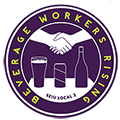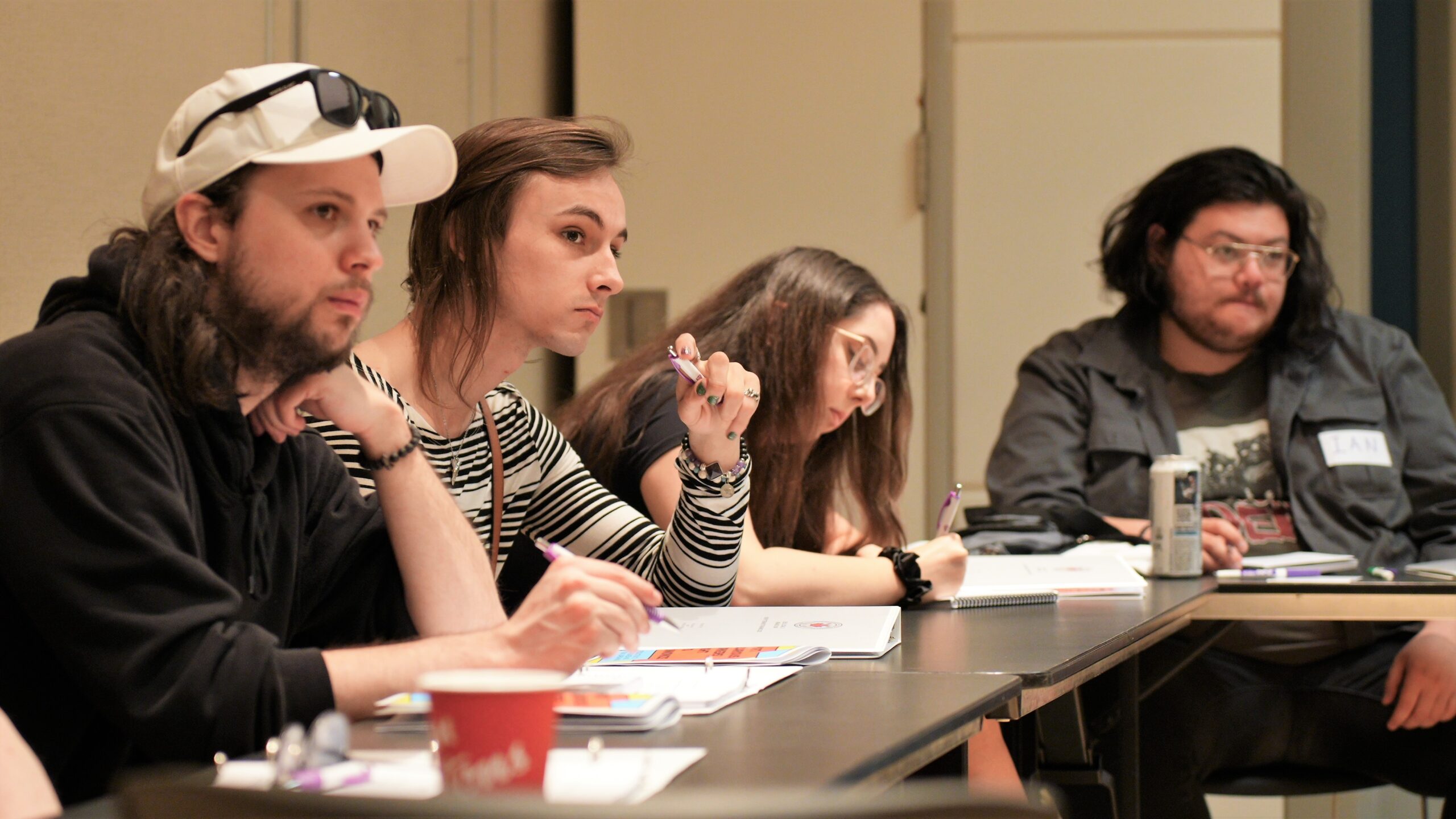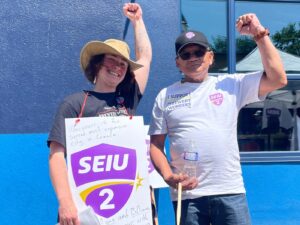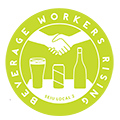Group says sectoral bargaining needed to make improvements
SEIU Local 2 gathered unionized worker-leaders from across British Columbia in Vancouver on June 23rd to discuss and debate issues and organizing in the private liquor industry.
“This gathering allows workers to discuss issues we’re having in private liquor stores, across numerous employers”, said Cody Dilullo who travelled from Kelowna and was a facilitator of the event. “Workers filling various roles within these stores helps us collectively identify common problems.”

In addition to a discussion on the BC Labour Movement’s push for Broader-Based and Sectoral Bargaining to support precarious workers’ right to unionize and bargain collectively, the meeting included a detailed steward’s training led by Raj Dhaliwal and SEIU Branch 300 President John Locke.
Many of those in attendance are worker-leaders employed at private liquor stores that have recently unionized in metro-Vancouver, BC’s Interior and on Vancouver Island. Several of the newly unionized workers are in the early stages of winning a first collective agreement. Together they are learning how to enforce the Agreements and raise standards for workers across the sector.

“Coming together like this gives us the tools to better understand our role as Union leaders in our workplaces,” added Olivia Brand who was part of a recent organizing drive at her liquor store. “It helps us know what limits to set with management and how to help our co-workers. It also lets us meet other people in stores going through the same process and learn from each others’ experiences.”
“As the driving force behind the liquor industry it’s important that we come together to have open discussions on how we can collectively improve it” added Ian Pardi, who travelled from his recently unionized liquor store in Surrey.

The rise in the cost of living and unprecedented inflation we are experiencing means workers are still struggling to pay bills and make ends meet. The Consumer Price Index (CPI) as calculated by Statistics Canada has annual inflation at 6.8%, the highest we have seen in 31 years.
“The industry conditions are intolerable,” added Brand, “and workers coming together is the only means to improve them. The owners in the industry want to maintain low working standards for the sake of profits, so we can’t expect positive change from them.”

SEIU, along with numerous other BC Federation of Labour affiliates, are developing proposals to submit to the NDP provincial government to push for legislative changes that would bring about a sectoral model of collective bargaining – akin to some European countries. These proposals address industries like liquor retail, fast food, and other precarious sectors that have been unable to meaningfully access collective bargaining under the existing labour code.
“The nature of retail work and low union density in the sector poses challenges to the workers trying to win better conditions. A broad approach across the sector is the best hope for change” explained Brand.
“We see that employers in the private liquor retail sector use government minimum standards as an excuse to do the bare minimum for their employees.” Said Dilullo. “Sectoral bargaining would raise the floor by adding a regulatory and legislative framework for companies and workers to create more comprehensive working conditions.”


















